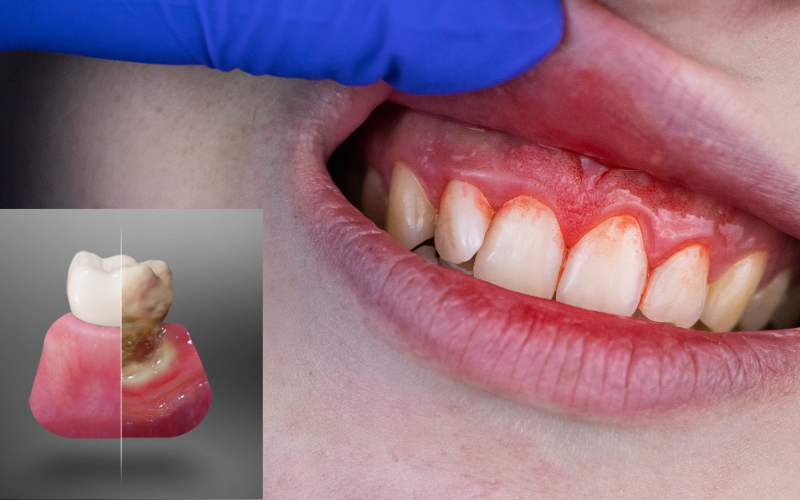(703) 372-5665
Gum Diseases And Factors That Lead To It

Gum Diseases And Factors That Lead To It
Every day, you should brush your teeth twice and floss as required to maintain your mouth and gums in tip-top shape. You may wonder what’s going on in your mouth if your gums start bleeding when you brush them. If you don’t floss regularly, your gums may bleed when you do. When brushing or flossing, you may notice that your gums are bleeding. This indicates that you may have gum disease. If you see red, irritated, or bleeding gums, the best way to be sure is to schedule an appointment with your dentist immediately.You can visit the best Lorton Dentist in Virginia for more information on gum related treatment.
Causes of Gum Related Disease
Gingivitis is the most likely culprit when your gums bleed while you brush your teeth. It’s conceivable that you’re cleaning your teeth too hard and need to soften your brushing technique. Scrubbing the oven is not the same as brushing your teeth. Because you do it so often, you’re just brushing away the remnants of your recent meal. For best results, you should wash your teeth thoroughly but not excessively. Brushing harder will have little impact if you have hardened plaque or tenacious stains on your teeth, so be careful with your gums.
If your gums are bleeding, it’s conceivable that you have a health problem like leukemia or a vitamin deficiency. Poor oral hygiene, which allows germs to flourish in plaque on your teeth, is most likely to blame for your periodontal disease. If your gums become inflamed and recede, you risk losing teeth and bone mass. Preventing gum disease is the first step in preventing this process, which will help you keep your teeth and gums healthy.
Regular brushing and flossing of the teeth
Despite the importance of cleaning your teeth and flossing daily, plaque may solidify and become calculus. This hard material is difficult to remove. Suppose you don’t see your dentist regularly. In that case, plaque and tartar buildup will be removed, preventing germs from gaining access to your teeth and inflicting serious harm if left untreated. The health of your teeth and gums may significantly influence your entire well-being. Inflamed gums may enable germs to enter the circulation, leading to a heart attack or stroke if left untreated.
You should brush and floss your teeth at least once daily and as often as necessary to maintain good oral hygiene. In addition to cavities, gum disease may occur due to poor oral hygiene practices. Strong evidence supports a wide range of full-body health issues that may be caused by gum disease, including tooth and bone loss in the mouth, heart and brain function issues, and many other conditions. Suppose your dentist has diagnosed you with gum disease. In that case, you should seek immediate treatment to halt the condition’s progression and reverse its effects.
Gum disease symptoms to look out for
Aside from the fact that gum disease isn’t always unpleasant, there are a few telltale indicators that may help you establish whether or not you have it. You may suffer from gum disease if you spit out a little amount of blood or if your toothbrush is pink. Gums in good health are pink and fit snugly around a tooth. A red, purple, or swollen gum is a sign of gum disease. Gum disease has dissolved the bone that holds the tooth roots in place, resulting in loose, wobbly teeth. While the gums may seem receding, the tooth’s root is exposed. To avoid damaging the roots, use a delicate brush to brush up and away from the root.
Gingivitis and periodontitis are two different diseases.
It is called gingivitis when the bacteria that flourish in the sticky material known as plaque, which builds up in unbrushed regions of your teeth, develop into gum disease. If it is identified early enough, this gum disease may be treated and your dental health restored. If gingivitis is not treated, it may progress to periodontitis, a far more dangerous disease.
Factors that increase the likelihood of gum disease in a person
Many illnesses and problems may be caused by periodontal disease. Clogged arteries may cause a wide range of health problems, including heart disease and stroke if bacteria from inflammatory gums persists in the circulation.
- Coronary artery disease
- Stroke
- Diabetes
- Diseases of the lungs
Do visit Lorton Town Dental in Lorton for the best gum disease related treatment in a nearby location.






